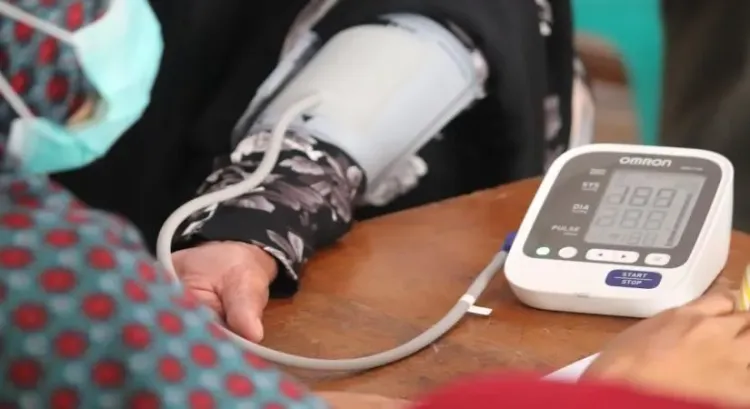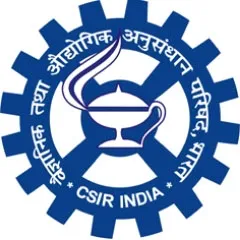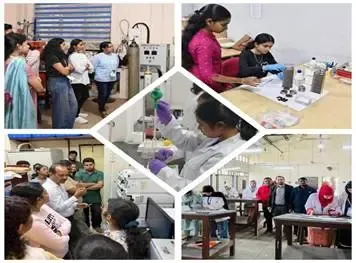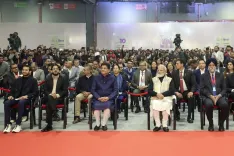Is Hypertension a Silent Killer Affecting Over 294 Million People in Southeast Asia?

Synopsis
Key Takeaways
- Hypertension affects over 294 million people in Southeast Asia.
- The unmet need for hypertension care is alarmingly high at 88%.
- Major risk factors include tobacco, alcohol, and unhealthy diets.
- Initiatives promoting healthy lifestyles are essential in combating hypertension.
- Collaboration among health programs is crucial for tackling related non-communicable diseases.
New Delhi, May 16 (NationPress) Hypertension, commonly referred to as high blood pressure, is a significant health threat impacting over 294 million individuals in the Southeast Asia region, as reported by the World Health Organization (WHO) this Friday, in anticipation of World Hypertension Day.
Annually held on May 17, World Hypertension Day aims to increase awareness regarding hypertension and its severe health implications.
The theme for this year is "measure your blood pressure accurately, control it, live longer", underscoring the necessity for consistent and precise blood pressure assessments.
“Hypertension remains a critical public health issue -- a silent killer impacting over 294 million people in the WHO South-East Asia Region,” stated Saima Wazed, WHO's Regional Director for South-East Asia.
She further noted, “Behavioural risk factors that can be modified, such as tobacco and alcohol consumption, excessive salt intake, lack of physical activity, poor dietary habits, and mental stress, are contributing significantly to its prevalence.”
Wazed highlighted that this condition is a leading factor in premature deaths due to heart attacks and strokes in Southeast Asia.
In India alone, more than 220 million people are living with hypertension, impacting nearly one in three adults.
Concerningly, Wazed mentioned that the unmet need, defined as the disparity between those diagnosed with high blood pressure and those receiving proper treatment and management, remains alarmingly high at 88 percent.
“This signifies that 9 out of 10 individuals with hypertension are not receiving adequate care,” the Regional Director emphasized.
She urged for more vigorous efforts and initiatives advocating for healthy eating, physical activity, controlling tobacco and alcohol use, and reducing salt and trans-fat intake.
Moreover, enhancing collaboration among health programs—including maternal and child health, mental health, and infectious disease services—is vital for addressing hypertension and related non-communicable diseases (NCDs).
“With determined political commitment, community involvement, and innovative strategies, we can alleviate the burden of hypertension and move closer to our global objective of decreasing premature mortality from non-communicable diseases by one-third by 2030,” Wazed concluded.










